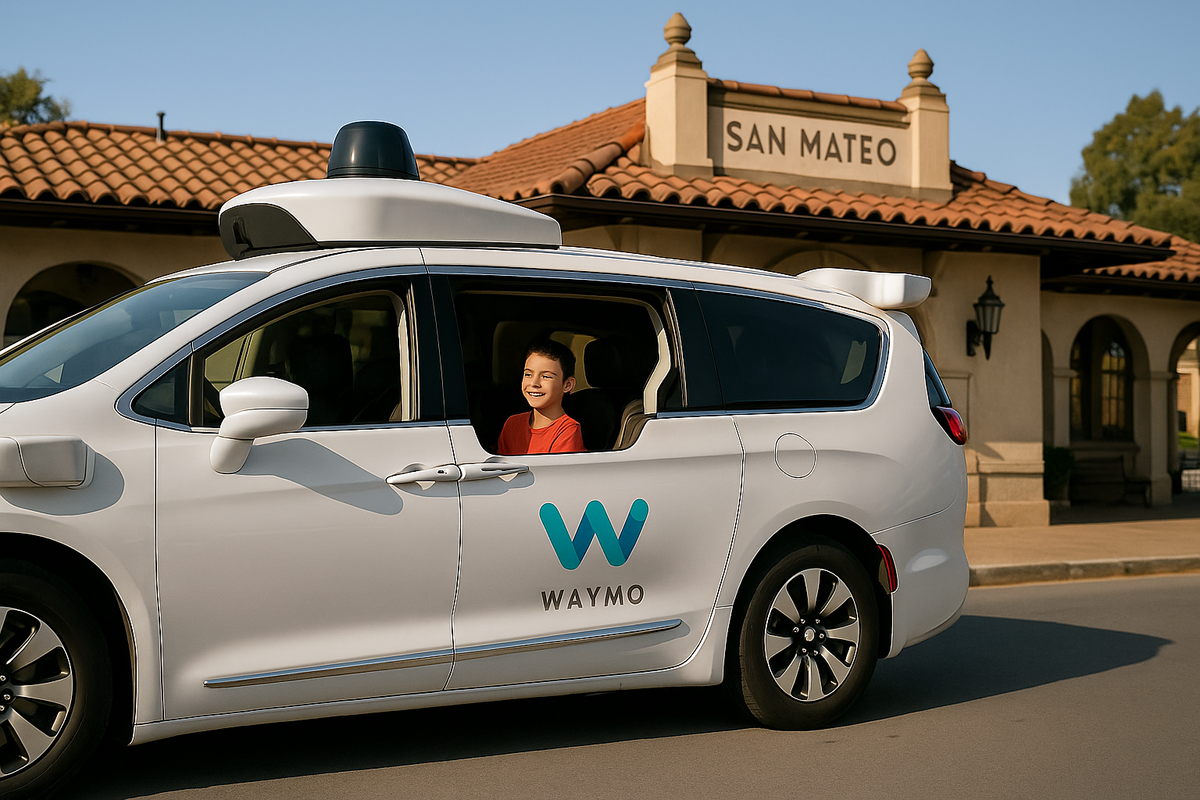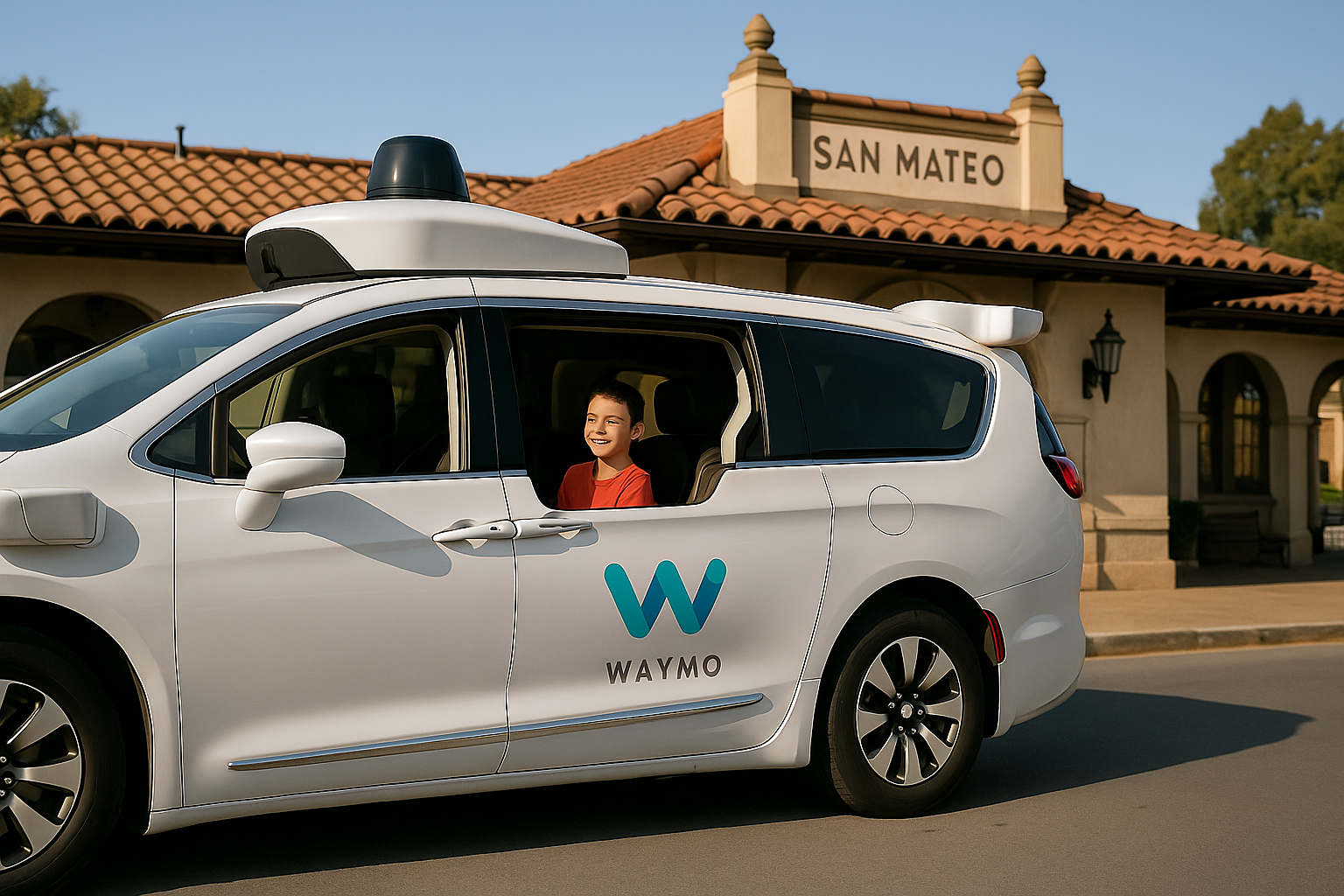Waymo One Expansion in San Mateo County Awaited by Parents Seeking Reliable Rides for Minors


SAN MATEO, Calif. — Waymo, the autonomous vehicle subsidiary of Google (Alphabet Inc., GOOGL), has expanded its driverless ride-hailing service, Waymo One, into parts of San Mateo County, but the service is not yet available to the public in San Carlos and San Mateo as of July 17, 2025. The California Public Utilities Commission (CPUC) granted approval in May 2025 for Waymo to extend its commercial robotaxi operations to additional areas in San Mateo County, including San Carlos, San Mateo, South San Francisco, Burlingame, Brisbane, Millbrae, and San Bruno, as well as nearly all of San Jose. However, Waymo has adopted a phased rollout approach, and public access in San Carlos and San Mateo remains pending.
Currently, Waymo One is operational for the public in Daly City, Broadmoor, and Colma, following an expansion in August 2024, and in parts of Silicon Valley, including Mountain View, Palo Alto, Los Altos, and Sunnyvale, as of March 2025. The company began offering rides in South San Francisco, Burlingame, Brisbane, Millbrae, and San Bruno in June 2025. In San Carlos and San Mateo, Waymo is still in the testing phase, with autonomous vehicles operating primarily for employees and select passengers. The company has not announced a specific timeline for opening Waymo One to the public in these cities, emphasizing a methodical approach to ensure safety and reliability.
Parental Demand for Autonomous Ride-Hailing
Parents of minors in San Mateo County, particularly in San Carlos and San Mateo, are eagerly awaiting Waymo One’s public launch due to a significant gap in transportation options for their children. Previously, ride-hailing services like Lyft (LYFT) and Uber (UBER) offered programs such as Lyft’s “Teen Accounts” and Uber’s “Uber for Teens,” which allowed parents to arrange rides for their children with added safety features like driver background checks and real-time tracking. However, both companies scaled back these services in California by 2024, citing regulatory challenges and rising operational costs. This has left families with limited options for transporting minors to school, extracurricular activities, or social events, especially in suburban areas where public transit is sparse.
Waymo One’s driverless technology is seen as a potential solution, offering a safe and reliable alternative. The absence of a human driver eliminates concerns about driver conduct, and Waymo’s advanced sensor systems, including cameras, radar, and lidar, provide continuous monitoring of the vehicle’s surroundings. Parents view the service as a way to ensure their children’s safety without relying on traditional ride-hailing or overburdened public transit. However, Waymo has not yet confirmed whether it will offer a dedicated service for minors, similar to Lyft and Uber’s discontinued programs, which required parental consent and age restrictions. The company is reportedly exploring policies to accommodate younger riders, but no specific plans have been announced.
Broader Implications and Challenges
Waymo’s service area in the Bay Area now spans approximately 85 square miles, with its fully electric Jaguar I-PACE vehicles providing rides via the Waymo One mobile app. The company reported over 250,000 paid rides per week across its U.S. markets in April 2025, with a strong safety record, noting only two collisions in San Mateo County between May 2024 and April 2025, according to the California Department of Motor Vehicles. While freeway operations are limited to testing with select passengers, Waymo is exploring future service to San Francisco International Airport and San Jose Mineta Airport, which could benefit San Carlos and San Mateo residents once public service begins.
Local officials have expressed mixed sentiments about the expansion. Some have raised concerns about coordination with local emergency services and the potential impact on traditional ride-hailing drivers, while others see potential for improved traffic safety and accessibility. San Mateo County has supported efforts like Senate Bill 915 to grant local governments more control over autonomous vehicle regulations, though the bill was withdrawn in June 2025.
For now, residents of San Carlos and San Mateo, including parents seeking reliable transportation for their children, can expect continued testing in their areas. Waymo is working to refine its operations before opening the service to all riders. Interested users can download the Waymo One app to monitor availability updates.



